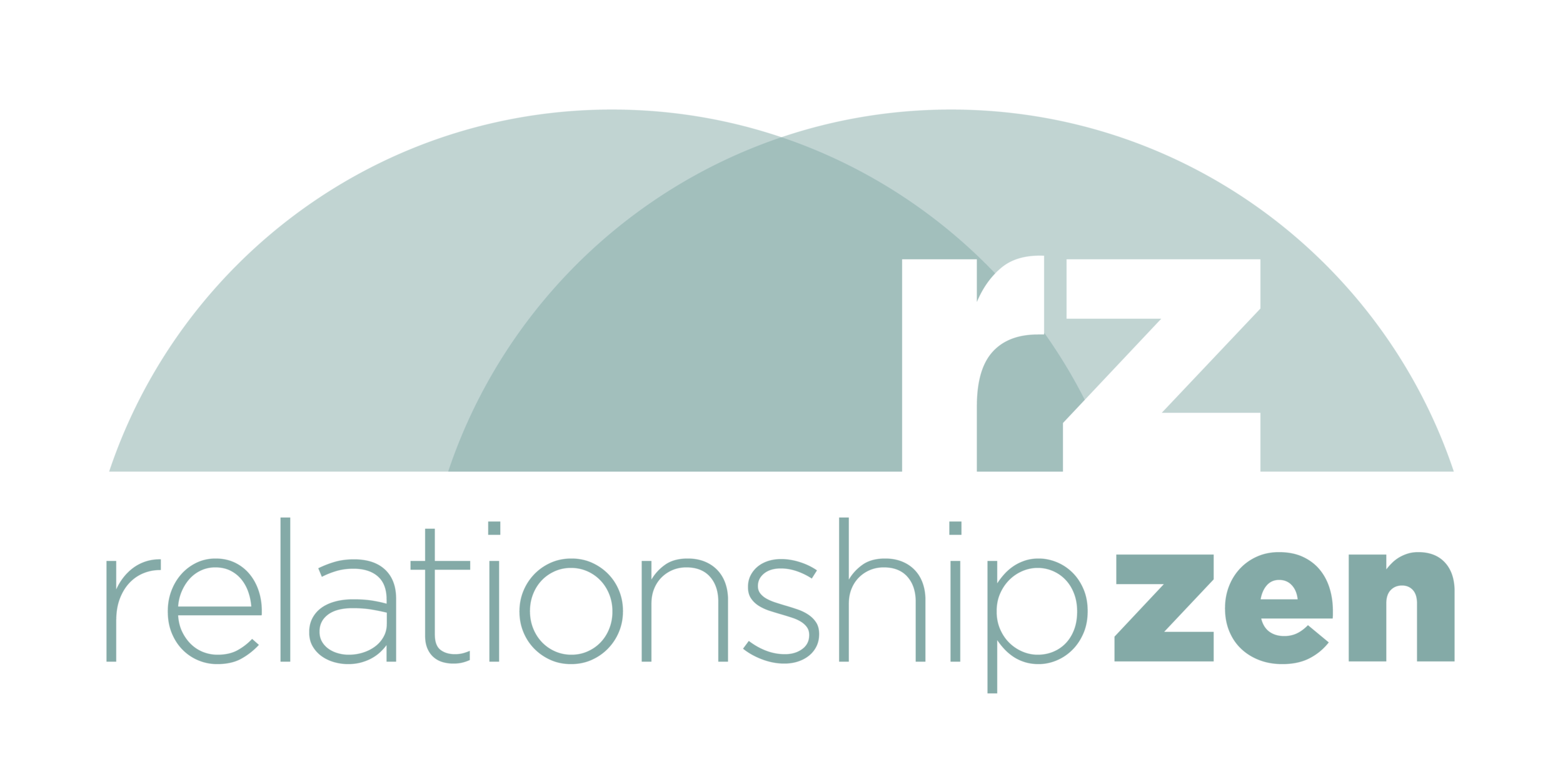Is Your Relationship Plagued by Drama-Llama? Here's Your 3-Step Guide to Conscious Conflict.
How can we be so good one moment, but then loathe each other the next moment?
After the honeymoon or infatuation phase of a relationship (3 months to 3 years), many couples fall into the trap of getting into repetitive, hurtful and frustrating fights.
We’ve been there: being lovey-dovey one minute and pissed off with each other the next… Can anyone else relate?
Believe us, you’re not alone. Drama is addictive.
Literally.
Did you know the chemicals that are produced by your brain in the heat of drama are pain-suppressing and pleasure-producing? What’s scarier is that the drama can fill some of our unmet needs for attention.
And guess what happens after an intensely passionate dramatic episode? We make-up! So again, in some odd way, cycles of drama (and making up) meet our physiological and emotional needs.
And just like any addiction, we can build a tolerance so the drama intensifies! But aspiring relationship nerds wouldn’t want that, right?
Heck no.
So whether you’re already addicted to drama or would like to experience more conscious conflict, read on to learn:
How to recognize the drama cycle and interrupt it in its tracks
What you can do INDIVIDUALLY to break the drama cycle
What you can do TOGETHER to break the drama cycle
If you’re each willing to stop the addictive and toxic behaviour, then there’s limitless potential to co-create a great relationship.
1. Recognize (and Interrupt) the Pattern
It’s important to become aware of our “pre-fight” cues. What happens to you (and your partner) when — at a deep and sometimes subconscious level — you feel hurt, unseen and defensive?
Simply recognizing and labelling these cues as they happen can be enough to shift into a conscious conflict mode.
Instead of attacking your partner or running away from the situation, try the notice, label, and communicate approach:
Oh, my heart is beating faster and I’m clenching my jaw… I think I’m starting to feel hurt by what he’s saying. I’m going to let him know how I’m feeling and ask him how he’s feeling.
Even that simple check-in can make a world of difference.
It’s always easier to notice that the other person is getting worked up, but we encourage your focus to be on what you can do first. That doesn’t mean neglecting how they impact you, it means being self-aware and a little vulnerable:
So instead of:
“What is wrong with you? You’re being ridiculous.”
Try:
“I’m really confused and frustrated by this conversation. Is there something I’m missing that you can fill me in on?” (Watch your tone though).
Here are some of the mental, emotional, physiological and behavioural things to notice in yourself and to discuss as a couple:
Constricted or volatile body language (fast or irregular breathing, arms crossed, jaw clenched, pacing, withdrawing, freezing or looking like one’s ready to fight, etc.)
Changes in voice, tone and language (raising your voice, being short, using harsh words, etc.)
Nagging, using put-downs, being judgmental, wanting to change your partner and making accusations
Negatively or passively perceiving much of what is being said
Invalidating what is being said
Bringing the past in the conversation or threatening the future
Using terms like “you always”, “you never” or others we’ve flagged here
Using words or comments to hurt the other, stonewalling, communicating with resentment or contempt, like we’ve flagged here
Recognizing these “pre-fight” cues is the first step to conscious conflict.
It takes practice. Remember that if you’re addicted to drama, it’s going to take patience, good will and collaboration to break the pattern.
Don’t beat yourself up if you catch yourself in the act. Heck, learn to laugh about it. What matters is that you become more aware of these behaviours the earlier they manifest, so that you can stop yourself before that addictive dose of adrenaline kicks in.
The earlier you can stop yourself, the less frequently you will find yourself engaged in the “pre-fight” routine and you’ll skip the drama altogether.
2. Change Yourself First
The key thing is to be vulnerable and accept ownership for your part of the drama.
Assume that you do own a part of the drama.
You can support your partner, but it’s important to understand that you cannot change them.
Own your emotions, don’t try to control theirs
When you’re already in a heightened and hijacked state, it’s more difficult, or even too late, for conscious communication.
So when you notice the beginnings of the drama cycle in yourself (i.e. the pre-fight cues above), try standing up, stretching, walking, exercising, watching something funny, or simply taking a few moments to cool down before talking with your partner.
Then, breathe, put your hand on your heart or belly and ask yourself these four powerful questions:
How am I feeling at this very moment?
What do I want to happen next?
If I say or do this right, will it bring us closer together or will we end up farther apart?
What is it that I can do to help in this situation?
Respond differently, don’t react
We often advise couples who are caught in the drama cycle to simply respond differently. Think about the last few dramatic arguments you’ve had. Do some of them seem repetitive or cyclical or related?
A simple way to break the cycle is to respond differently the next time it comes up.
Switch it up.
As long as it’s respectful, it’s within limits.
You’d be surprised how effective this technique works in breaking the pattern! We promise, just try it!
If you normally try to rationally argue when confronted, instead, try to ask a compassionate question. If you normally withdraw, instead, try to stand up and explain how you feel. If you’re normally on your phone or laptop when your partner is arguing with you, instead, try to give them your undivided attention.
Heck, propose a few minutes of silence and stare into each others eyes! Whatever works. Then, get back to the conversation with a more relaxed and productive mindset!
Address each other’s needs
Finally, address the cause of your conflict in a compassionate and vulnerable manner, rather than in a closed off, defensive or offensive way.
Use this “fill in the blanks” statement…
“I realized that I feel [feeling] about this [situation] because [reason for your feeling]...”
Try to understand why you’re feeling the way you are. If you don’t know, let your partner know and see if you can explore together.
Don’t wait for them to “rescue” you, read your mind, etc. that’s not fair and hardly productive. Conversely, don’t try to “fix” your partner. They’re not broken and it’s not your responsibility.
Warning: If your partner is constantly disrespectful of your needs or violates them, then please set boundaries and decide what’s best for you (reach out for support!).
3. Work Together to Set Up Conscious Conflict - no more drama llama!
Maybe you’re reading this and thinking, “why is it all up to me!” Well, change begins from within. And once you change your reactions and responses, it will inevitably (sometimes right away and sometimes over time), cause a different reaction from your partner.
Once you’ve taken the time to navigate through your own responses and reactions to conflict, start the conversation with your partner to discover how you can bring conscious conflict into your relationship.
But we won’t leave it there.
Here are some reflective questions for you to consider together before the next drama cycle. Schedule a date to discuss them together:
Do you have any unmet needs that typically trigger explosive conflicts that you can think of and share with your partner?
What could you and your partner do DIFFERENTLY, together or separately, when you notice the cycle is starting so that you are not reacting, freezing, withdrawing or exploding?
What are things that you can do as a couple to remind each other that you are both each other’s priority and that compassion for one another is the priority?
What things could you do, preventatively, to bring your best self to the relationship by finding more joy, peace, and fun in your life?
We recommend that you write your responses together in your journal and add it as a reflection in your daily meditation or stillness practice.
And there you are, you’ve finished our guide to conscious conflict!
Having relationship problems? Want to crush those relationship goals with less stress and more ease so you can achieve more, feel more and experience more as a team?
If so, join fellow relationship nerds on our mailing list (at the bottom of this page) so you don’t miss out on advice and exclusive offers.
We’re not two halves, we’re two wholes sharing a path and we’re inviting you to join the movement!
David and Lindsey
Your trusted conscious relationship coaches
P.S. If you loved this article, please share it with a friend who needs it. Your shares help inspire one thriving relationship at a time. Or, read on. Thank you!






